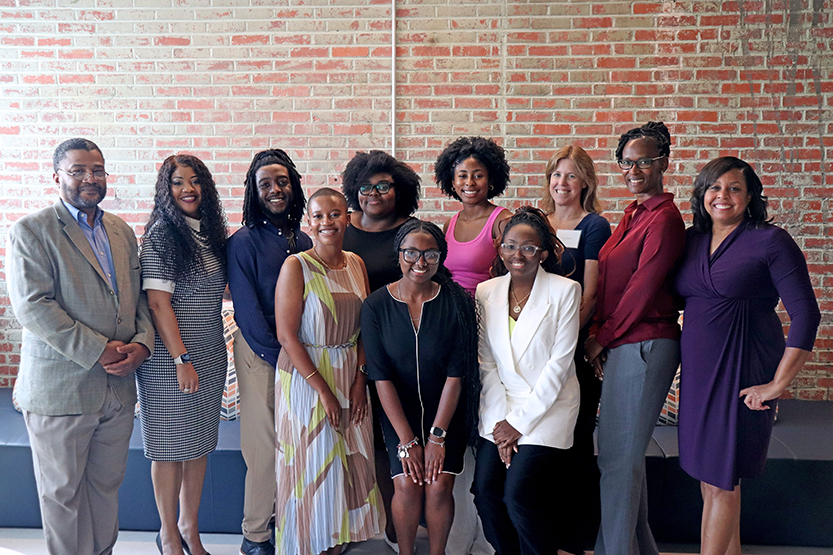
Duke University and North Carolina Central University recently received the National Institutes of Health (NIH) Institutional Excellence in Diversity, Equity, Inclusion, and Accessibility (DEIA) in Biomedical and Behavioral Research Prize. The two schools were jointly awarded a $100,000 prize for demonstrating exceptional dedication and innovation in fostering DEIA within research environments.
The NIH awarded the prize to 10 institutions that have implemented effective strategies that promote equity and eliminate structural barriers to success among students, postdoctoral scholars, and faculty in the biomedical and behavioral research enterprise.
Duke and NCCU won the prize for the work accomplished through the Duke-North Carolina Central University Partnership. Leaders at both schools created the partnership in 2017, launching multiple initiatives aimed at addressing a pervasive gap in diversity in the clinical and translational science workforce. Initiatives include a new clinical research sciences certificate program and undergraduate clinical research sciences bachelor’s and minor degree programs at NCCU and NCCU student internships within the Duke University School of Medicine. To date, eight collaborative research projects have been funded, and a number of prevention research projects have been completed.

As a result of the Duke-NCCU partnership, 33 NCCU students earned certifications or degrees in clinical research, and 25 internship placements for NCCU students at Duke were made possible, with two full-time job offers extended to student interns. Other partnership successes include engaging the Durham community in research and health education and creating a new training pathway that invests in NCCU undergraduates seeking careers in neuroscience-based research and clinical care.
To coordinate collaboration between the universities, the Duke-NCCU Bridge Office was established in 2021. The office, which is housed administratively within the Duke Clinical and Translational Science Institute (CTSI) and the Biomedical Biotechnology Research Institute (BBRI) at NCCU, helps to seamlessly connect researchers from both institutions.
A direct outgrowth of the formal partnership, the Bridge Office comprises leadership from both campuses, including Bryan Batch, MD, and Lisa Davis, PhD, MSPH, from Duke, and Faye Calhoun, DPA, and Undi Hoffler, PhD, from NCCU. Each member of the leadership team brings a breadth of expertise and experience and works diligently to nurture, grow, and support bi-directional research and learning at multiple levels based on a foundation of respect, candor, and equality.
“Our goal is to ensure the success of our current programming and to develop future programming to support researchers, students, trainees, and collaborative research at Duke and NCCU,” said Batch, faculty director of the Bridge Office.
“It is amazing to see the Bridge Office grow, and institutional ties strengthen,” said Davis, director of operations for the Bridge Office. “I am incredibly proud of the partnerships that we have cultivated, and the departmental champions, and leadership support for the office. We are truly making positive impacts and helping students successfully navigate their professional pathways.”
The DEIA prize will be split equally between Duke and NCCU. The funds will be used to support expansion of paid internship programs, develop new research collaborations on both campuses, and support NCCU faculty who have been instrumental in the success of the partnership.
In June, the prize-winning institutions will participate in a virtual NIH symposium to present their interventions.
The NIH initiated the DEIA Prize Competition in April 2023 to recognize transformative cultures, systems, projects, and processes developed by institutions of higher education to promote inclusive excellence and create environments that advance and value a culture of DEIA.